Buying a processor for a gaming rig is both easier and harder than it used to be. AMD’s Ryzen 7000-series and Intel’s 13th-gen Core CPUs offer fantastic performance—especially now that the battle between the two companies has become all-out war. If you want hearty performance, then the fastest clock speeds, highest core counts, and fattest caches yet await you.
The difficult part is the complexity of these new chip lineups. Do you pour all your money into the absolute best, like Intel’s 6GHz 13900KS? Or do you turn to AMD’s Ryzen 7000 CPUs with the company’s high-octane V-Cache? These days there’s more nuance to understand, especially if you want the most bang for your gaming buck. Smart shopping will leave more cash for higher priorities: primarily your graphics card, but possibly nicer quality-of-life features on your motherboard, too.
A few specific chips stand out from the rest as the best gaming CPUs due to their price, performance, or nifty extras. You can choose from a whole raft of runners-up too, thanks to an ongoing pricing battle between AMD and Intel.
Whether you’re on a budget or willing to pay for sheer face-melting speed, these are the best CPUs for gaming PCs that you can buy.
News update, 10/6/2023: With Amazon’s October Prime Day sale just around the corner, prices on Intel and AMD CPUs have been killer, thanks to healthy retail competition. Over the past week, we’ve already spotted the Intel Core i7-12700K for $240 at Newegg, as well as deals on Ryzen CPUs. The better deals are on last-gen parts, but you can save quite a bundle if you don’t need the absolute latest and greatest.
Intel Core i5-12400 – Best gaming CPU for most people
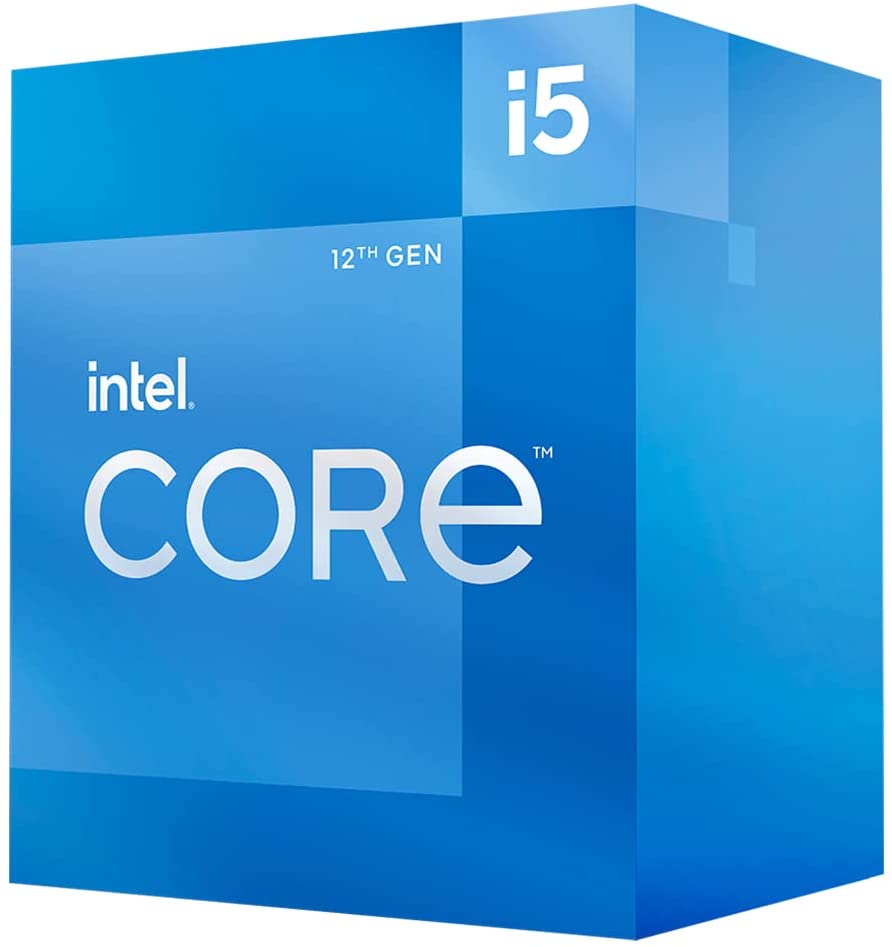
Midrange CPUs are the sweet spot for PC gamers. In fact, if you don’t need the additional cores of pricier CPU options, this class of chip offers essentially the same gaming experience of processors that cost hundreds more. The reason? Most of the computing burden falls on your graphics card.
At a street price of about $180, the Intel Core i5-12400 smoothly balances performance and affordability. Despite being succeeded by the Core i5-13400, it still holds strong in the sub-$250 space. This six-core, 12-thread processor offers plenty of oomph, so much so that it remains hot on the 13400’s heels in gaming benchmarks, as shown by TechSpot. It also provides support for DDR5 motherboards and memory, allowing you to build a system with a little more future-proofing built-in.
If you don’t care about DDR5 support, however, you can also consider the AMD Ryzen 7 5700X. At 1080p, it offers a slight bump in performance (around 5 percent). Still, be sure to consider which games you play most and which might give the greater advantage to AMD versus Intel. That said, if you’re upgrading your CPU on an older AM4 motherboard, we recommend the 5700X over the 12400; it’s a drop-in replacement that requires no other purchases, making it a highly cost-effective upgrade. (Just don’t forget to update your BIOS before making the swap.)
AMD Ryzen 7 7800X3D – Best high-end gaming CPU
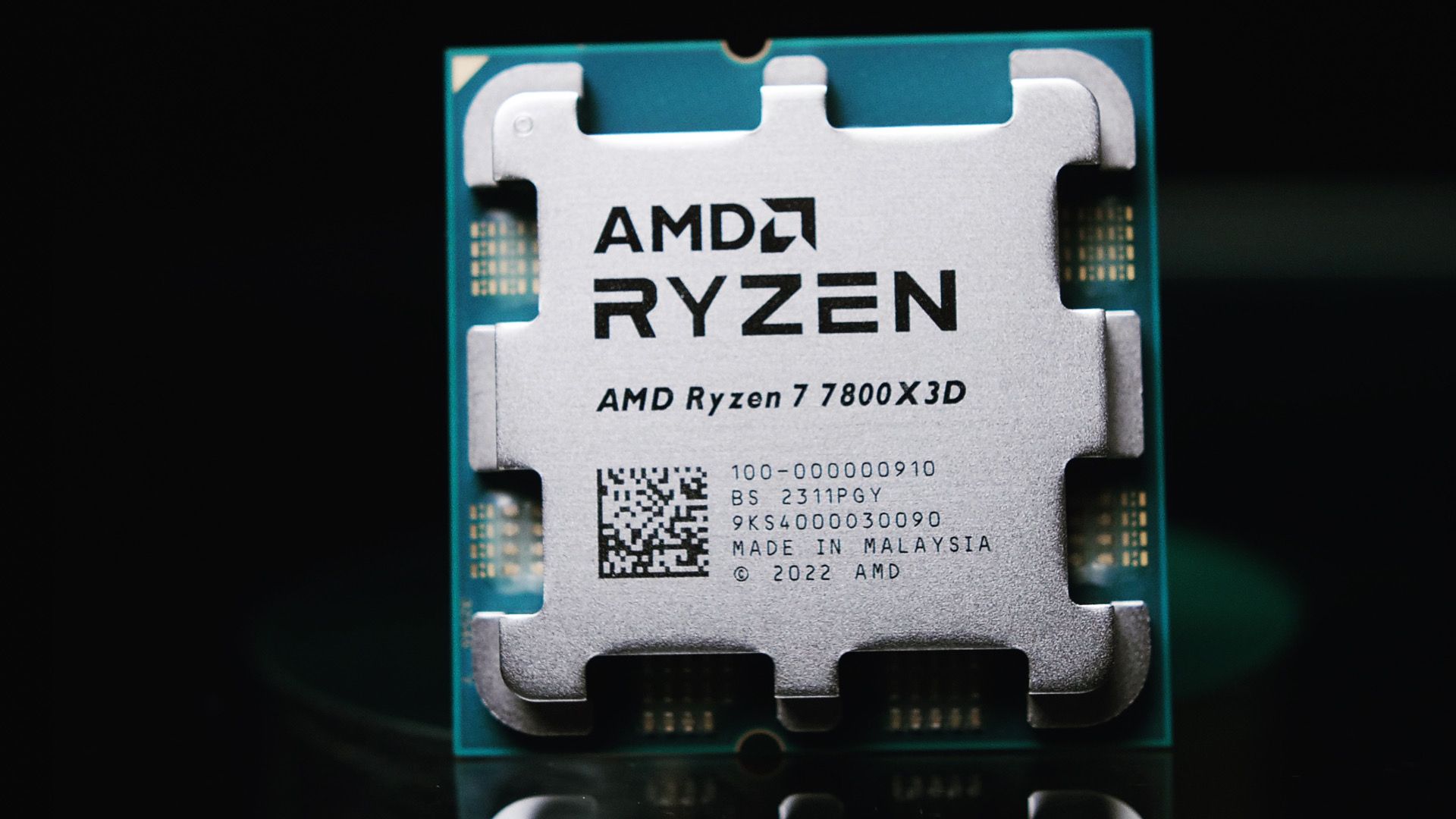
This one’s going to be a controversial pick, because the $450 AMD Ryzen 7 7800X3D isn’t the best gaming chip in all games. But boy, it punches super hard—enough that it performs way above its weight class. On average, it beats the far more expensive $589 Intel Core i9-13900K at 1080p in benchmarks. It also goes far easier on energy consumption. That means for many people (maybe even most folks), it’s the smarter buy.
That said, for some people, it won’t be the right pick. In games with better optimization for Intel processors or that respond to higher clock speed instead of cache size, the 7800X3D falls to the middle or even toward the bottom of the pack of top-end chips. It also is primarily a gaming chip. If you need more cores for production work and bulletproof gaming performance across the board (and utility bills don’t matter), then the 13900K is the 16-core, 32-thread processor for you.
Alternatively, if you want to save more money, the Core i7-13700K (MSRP $409) posts strong all-around performance, though you’ll lose about 5 percent in performance for 1080p gaming. Folks with a first- or second-generation Ryzen motherboard can also consider the Ryzen 7 5800X3D for a killer upgrade option, especially given its current street price ($300 to $330, depending on the day).
Intel Core i3-13100F – Best budget gaming CPU
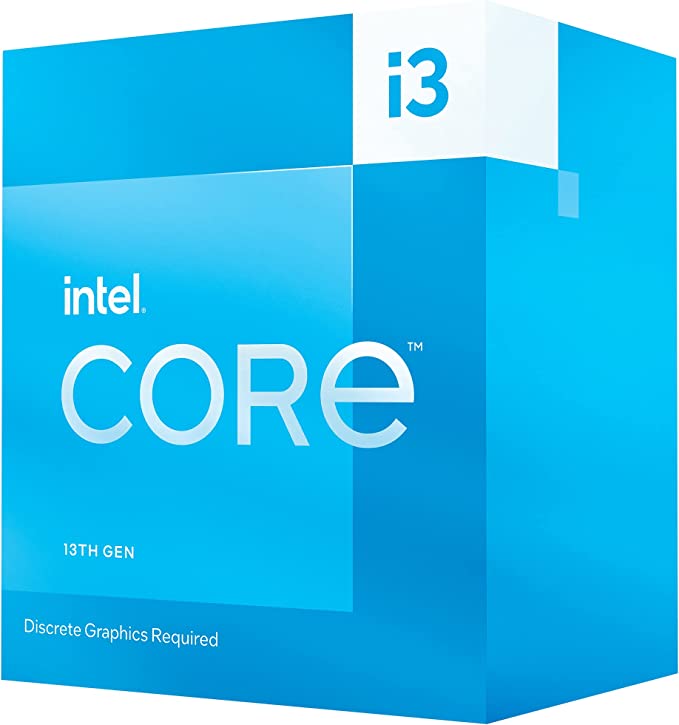
The Core i3-13100F may not offer much of a gain in performance over its predecessor (our former winner in this category), but given that both are the same list price (about $110), the newer chip is the one to snag. Either way, you’re getting the best performance you can get among budget chips, as you can see in benchmarks (like those from TechSpot). AMD’s Ryzen 5 5500 has a similar street price, but Intel’s entry-level CPU stays stronger across more individual games at 1080p while also coming out ahead on average. It’s a modest difference, but when every penny counts, so does every frame.
Note that you must have a dedicated graphics card to pair with this CPU. This variant of the $135 Core i3-13100 lacks integrated graphics, which is how you save cash. If you’re still saving up for an affordable graphics card but need to build a basic system now, you may instead want one of AMD’s APUs, which we discuss in the next entry below.
Ryzen 5 5600G – Best CPU if you're waiting to buy a graphics card
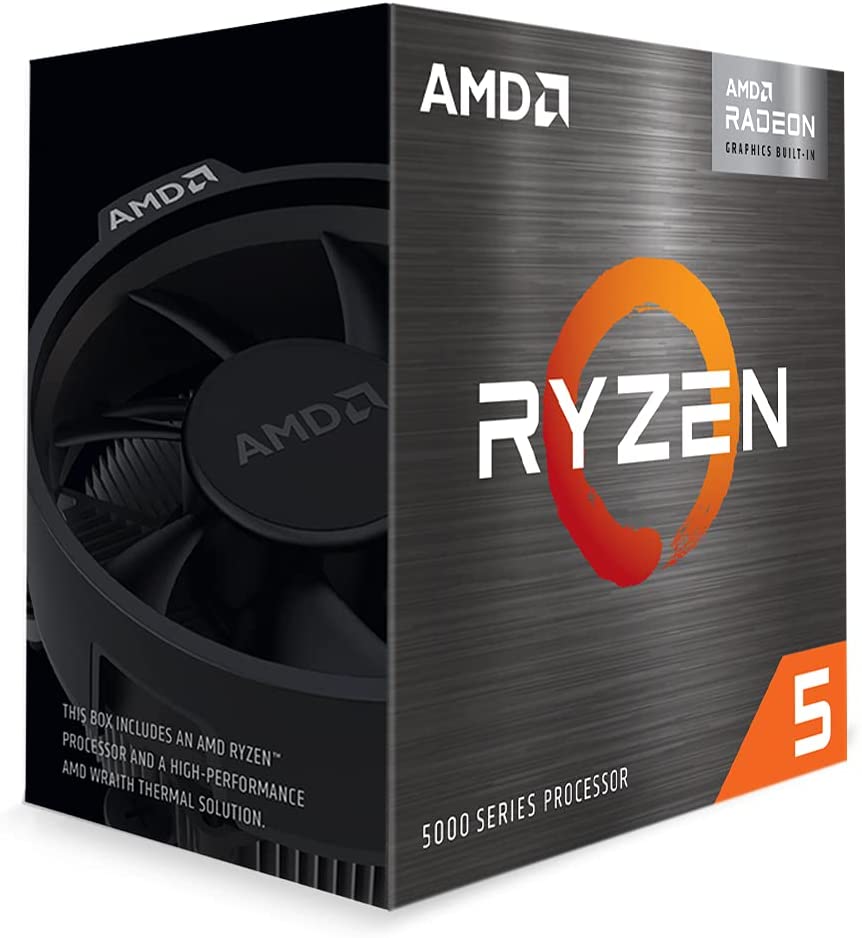
Graphics cards have mostly come down in price now, but shelves still lack good budget options. Your best bet under $200 is the 6500 XT, a card that comes with many caveats.
If the budget discrete GPUs available don’t appeal, one workaround is to purchase an APU, or a CPU with supercharged integrated graphics. We recommended this tactic last year and it still works now—especially since the street prices of the Ryzen 5 5600G (MSRP $260) and Ryzen 7 5700G processors (MSRP $360) have stayed at rock-bottom levels. You can now play most games at 720p or 1080p resolution for almost half the cost of these APUs’ list price.
The beauty of this approach is that you can play games now on this one purchase, then snag a graphics card at your leisure. That gives you more time to save up for a nicer card. The CPU cores in these APUs are very good for mainstream gaming, as our Ryzen 7 5700G review showed.
The 5600G offers six cores and 12 threads, paired with seven Radeon graphics cores clocked at 1.9GHz. The step-up 5700G bumps that up to eight cores and 16 threads, alongside eight Radeon cores running at 2GHz. Most shoppers on a budget are better off with the cheaper part, unless you have a specific need for the higher CPU core count in the Ryzen 7 chip.
Ryzen 7 5800X3D – Best mid-tier gaming CPU
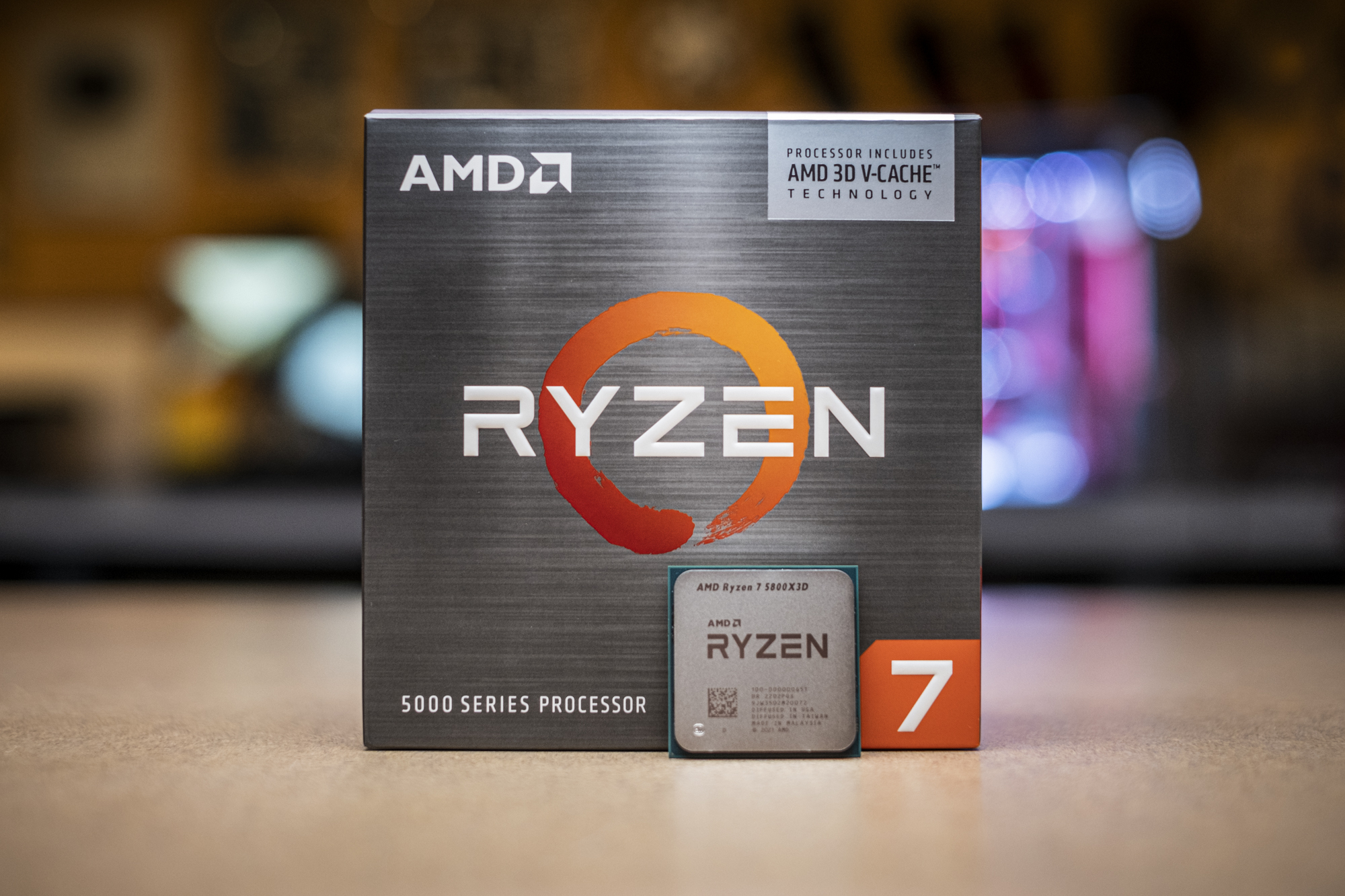
Once upon a time, a $300 processor was the top of the line for consumers. These days, it falls somewhere toward the higher end of mid-range. You could build with newer Ryzen 7000 chips or Intel 13th-gen processors, but the last-gen Ryzen 7 5800X3D remains a sharp knife in AMD’s toolkit. With its street price now steadily hovering between $300 and $330 (depending on the day), you can get a CPU that undercuts current-gen siblings and rivals in price while still keeping pace with them in games.
Put another way, the 5800X3D is cheaper than its Ryzen 7000 siblings (due to the higher cost of DDR5 motherboards and memory), as well as the $320 Intel Core i5-13600K. It also beats the 13600K in performance (even when the latter is used with DDR5 memory), as TechSpot shows in its review. Meanwhile, the $415 Intel Core i7-13700K only outperforms the 5800X3D when paired with DDR5 memory; with DDR4 memory, the 5800X3D wins in both price and performance. AM4 motherboards and DDR4 memory are easy to find for cheap these days.
The two caveats for the 5800X3D are that you are locked to a “dead” platform: That is, you can’t drop in a new chip for AM4 motherboards. But realistically, Intel changes its platforms frequently, so upgradability on that side is questionable. The 5800X3D also doesn’t perform nearly as strongly in production work (like video encodes) as in games. For a similarly priced chip with more all-around strength, you’ll want to look to the Intel Core i5-13600K.
Intel Core i5-13600K – Best current-gen Core i5/Ryzen 5 gaming CPU
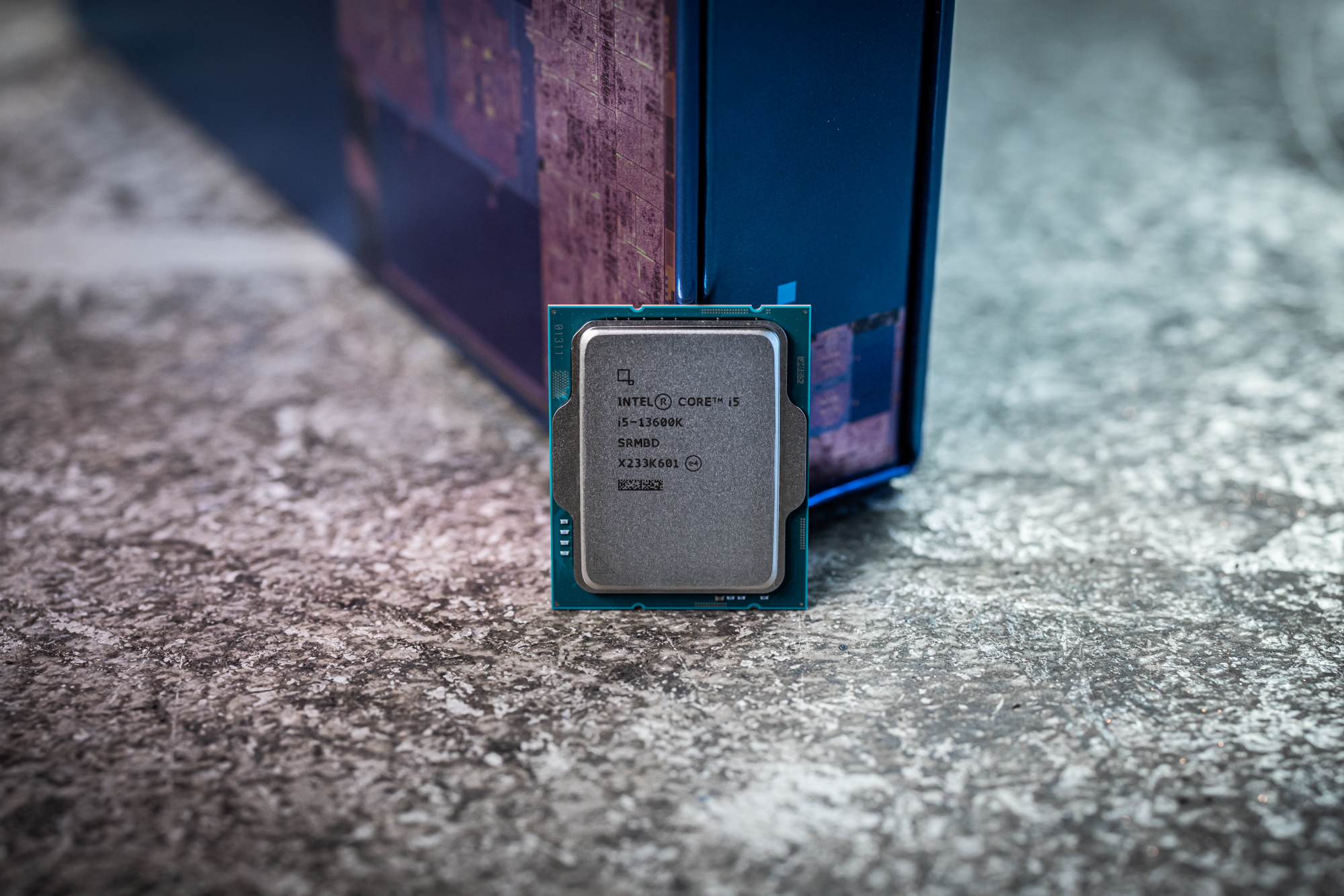
We know what the best mid-range gaming CPU is—but the Core i5-12400 is last-gen. To scratch the itch for newer architecture, you’ve got two main choices: Intel’s $330 Core i5-13600K and AMD’s $300 Ryzen 5 7600X.
Both processors are excellent chips, with strong performance that takes a big leap over their predecessors. But of the two, the 13600K offers more flexibility. If you choose to go with a DDR5 motherboard and memory, you’ll get better gaming performance than with the 7600X—roughly 5 percent, according to our sister site PC-Welt’s benchmark results. On the flip side, if you decide you need to put more cash toward your graphics card (which is a bigger influence on frame rates at higher resolutions, like 1440p), you can instead go with a more affordable DDR4 motherboard and memory.
Just keep in mind that compared to the 12400 (and other last-gen parts), the 13600K consumes more energy. If your power bills are a concern, take a closer look at power draw benchmarks.
How we test CPUs
We evaluate CPUs based on the benchmark results that span multiple use categories. Gaming performance is a key focus, and we run both synthetic tests (that is, dedicated benchmarking programs) and in-game benchmarks in a variety of modern titles. Our current suite includes Far Cry 6, Strange Brigade, Horizon Zero Dawn, Metro Exodus, Gears Tatics, CS: Go, Red Dead Redemption, Ashes of the Singularity, and Dirt 5. We also evaluate CPU reviews from our peers for models we haven’t tested yet.
Test PCs are built with the CPU’s capabilities in mind—for example, AMD’s Ryzen 7950X and Intel’s Core i9-13900K support DDR5 RAM. Rival and older chips used for comparison are retested at the same time, with a similar use of appropriate contemporaneous hardware. In all our test rigs, we use a current high-end flagship graphics card to better isolate differences in the CPUs’ performance.


